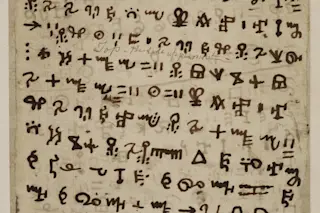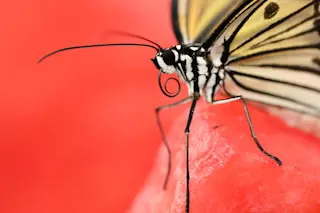The first letter in the English alphabet is famously thought to be descended from a 4,000-year-old ox’s head. Over millennia, minor stylistic shifts slowly reshaped an ornate Egyptian hieroglyph into the austere “A” we see today. For centuries scholars have suggested that all letters follow the same trajectory: They start out as iconic representations of real objects, then gradually morph into simpler abstract shapes. But the forces that guide these transformations still remain poorly understood.
To fully decipher the process, you’d need an unbroken record of those incremental changes — in other words, every variation between the ox and the A. Since only fragments survive from the earliest phases of writing (which was invented independently four times, in Mesopotamia, Egypt, China and Central America), it’s likely impossible to trace the complete history of most writing systems.
The unusual origins of one West African script, however, may offer a unique window ...















